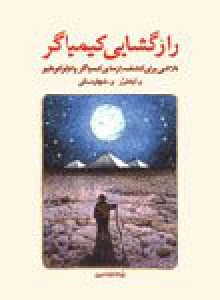The Alchemist's Alchemy appeared in Polish bookstores in late 2001, soon after the overwhelming success of Paulo Coelho's The Alchemist with the Polish readership and during the height of the public's fascination with this iconic work. An instant success, The Alchemist's Alchemy made it onto...
show more
The Alchemist's Alchemy appeared in Polish bookstores in late 2001, soon after the overwhelming success of Paulo Coelho's The Alchemist with the Polish readership and during the height of the public's fascination with this iconic work. An instant success, The Alchemist's Alchemy made it onto Polish bestseller lists one month after publication and has been widely discussed, much reviewed, and well-received by many critics since. Over 27,000 copies have been sold. It is a work non-fiction, written as a conversation between philosopher-journalist Wojciech Szczawinski and acclaimed psychologist Wojciech Eichelberger.
Eichelberger took it upon himself to distill and collect his thoughts on The Alchemist into a single whole. With a journalist as his guide, he explores the themes and symbols both hidden and obvious within Coelho's text. The effect is of a user's manual for The Alchemist, which is, of course, itself a manual on living to those whose life it has changed. The Alchemist's Alchemy is a map for navigating the pages of Coelho's masterpiece, a key for solving its abundant riddles of metaphor.
The dialogue between Eichelberger and Szczawinski is interwoven with passages from The Alchemist, selected because they illustrate the problems being explored and because they reflect the spirit of the conversation in that moment. Eichelberger's language is clear and unobscured by psychological jargon. The words he chooses are simple but powerful. His ideas resonate with all of us because they concern our very humanness.
The text is divided into eight chapters that concern the eight great themes in Coelho's book: humility, separation, omens, longing, courage, presence, love, and God. Such a form endows the content with accessibility and clarity, so that the reader who has not read The Alchemist will still be able to find answers to the question, How to live?
show less






 5 years ago
5 years ago